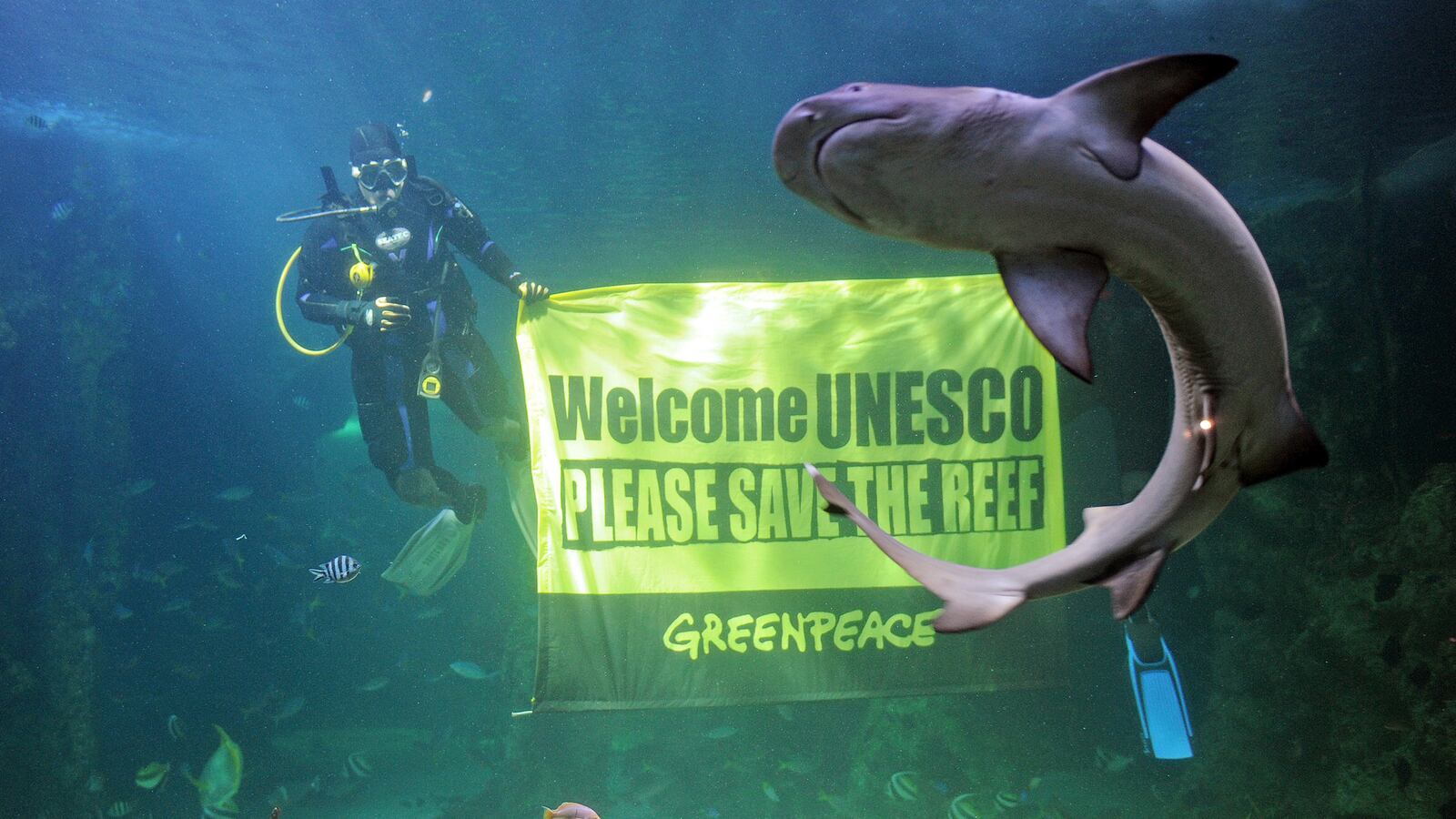Things are changing fast in Australia. Winter is coming, seasonally and politically.
Since the conservative Tony Abbott-led Liberal government took office last September, it has pushed through only eight pieces of legislation thanks to a hostile Senate. But in July, the country faces a Senate “changeover” that will flip the balance of power in favor of the government. At that point, Australians—not to mention environmentalists and tourists—better brace themselves.

Abbott has long prioritized big business over eco-friendly measures: He has already shuttered the Climate Commission (established to “provide reliable and authoritative” info about climate change) and ARENA, the agency responsible for increasing the amount of renewable energy sources used in the country. He’s introduced bills to repeal the carbon tax and the mining tax. And now, he’s gunning for some of the country’s most pristine ecosystems, from the forests of Tasmania to the Great Barrier Reef.
Abbott has vowed to “unlock” areas of Tasmania’s protecting forest for logging, saying, “We have quite enough national parks. We have quite enough locked up forests already. In fact, in an important respect, we have too much locked up forest.” He asked UNESCO to remove 74,000 hectares of Tasmanian forest from the list of World Heritage Sites—an area that includes some of the country’s oldest trees and important Aboriginal sites.
The Great Barrier Reef—the world’s largest coral reef system and also an UNESCO World Heritage Site—is set to be “unlocked,” too. The government has approved plans for an expanded coal port at Abbot Point. To allow more ships into the port—projected to be the largest of its kind in the world—a massive dredging project is needed, with a disposal site that would allow 3 million tonnes of dredged sediment to be dumped on the edges of the reef.
There has been some weasling around the fact that while the dredging soil and dumping would occur inside the designated Great Barrier Reef World Heritage Area, it’s outside the designated Marine Park area. There are legal reasons this matters, but to the coral and marine life, these artificial lines don’t exist.
Science site Future Timeline explains: “When sediment is dumped in this way, it can expand and travel outward, carried by ocean currents. The food chain is disrupted as seagrass and other plants die, in turn killing off animal populations that rely on them. Coral is weakened as increased sediment clouds the water and reduces the amount of sunlight getting through, harming algae that live symbiotically with them.”
The Great Barrier Reef is already in a fragile state. Years of overfishing, agricultural run-off, pollution, and rising ocean temperatures have affected an environment highly sensitive to change. The Reef has lost more than half its coral cover since 1985, with two-thirds of the loss occurring after 1998. And this in turn affects the fish, whales, dolphins, turtles, dugongs and seabirds that live within the Reef.
The only good news comes from Germany, where the Deutsch Bank has said it will no longer finance the port expansion project unless it can be assured the Reef won’t be harmed. On May 23, The Guardian reported that the bank “bowed to public pressure after 180,000 Germans signed a petition urging them not to fund the expansion.”
Meanwhile, the rest of Abbott’s planned political measures are similarly ominous for Australia’s future. The government has introduced a budget so wide-ranging and harsh that people who normally talk football around the water cooler are talking finance—and relocation to Sweden. The budget slashes funding to health, education and scientific research, hikes education costs, tightens disability and unemployment payments, extends the pension age to 70, removes $534 million from Indigenous health program and cuts $7.6 billion from foreign aid. During his budge speech, Treasurer Joe Hockey proclaimed: “The age of entitlement is over.”
By the entitled, Hockey must mean the poor, the young, blue-collar workers and families, for these are the groups that will be hardest-hit by the cuts (not, for example, rich white men and mining magnate Gina Rinehart, the fourth-richest woman in the world and friend of Barnaby Joyce, a senior minister in the Liberal government).
These changes are being made under the guise of fixing a country on the verge of collapse. But while Australia does have debt, it’s not doing that badly. Australia rode out the Great Financial Crisis relatively unscathed. It kept its AAA credit rating; GDP per capita climbed; inflation and unemployment are still low; and the dollar is strong. Many pundits argue it was the bickering and backstabbing among the previous Labor government that encouraged Australia to vote in a new party.
Being told the country needs tough love when the facts suggest otherwise is not going down well with the public. Abbott’s approval rating slumped immediately after the budget was released. Should this government lose the next election, many of its changes can be reversed. But people are becoming increasingly worried about the damage that cannot be undone.
With the mining tax gone, coal ports expanded, forests “unlocked” and environmental watchdogs scrapped ... with students, single parents, the Indigenous and the disabled further disempowered ... with cuts to foreign aid and ruthless treatment of asylum seekers ... Australia is heading into a long, harsh winter, one that could change the country irrevocably.






